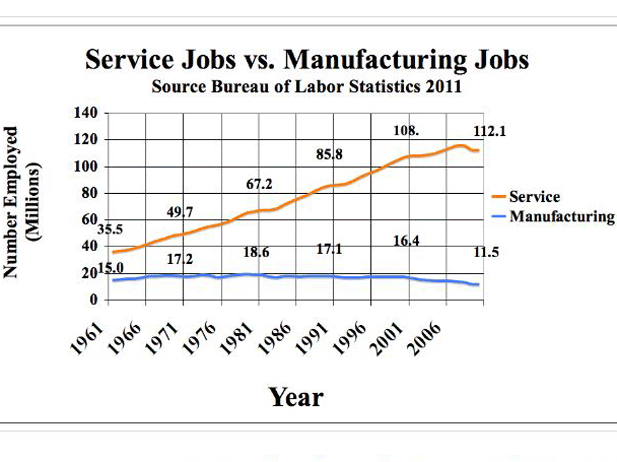Manufacturing and the Middle Class

More on:
Rick Santorum deserves credit for trying to draw attention to the fate of U.S. manufacturing. As he pointed out at last night’s GOP presidential debate in Tampa, manufacturing has long been a source of good middle-class jobs, helping to build “that ladder of success all the way down so people can climb all the way up.” The problem is, as the chart below shows, that manufacturing hasn’t been the source of job creation in the United States for a very long time. Indeed, the number of manufacturing jobs has fallen by about a third over the past decade.
 Chart source: Jim Bendarski.
Chart source: Jim Bendarski.
This is not to knock the service sector—after all, I work in it—or to say that manufacturing is the only source of good middle-class jobs. But it is a primary source of well-paying jobs for many Americans. The challenge for government is how to encourage manufacturing growth. What makes that challenge especially tough is that industrial processes are increasingly capital intensive. U.S. manufacturing output is actually up in recent years, but firms have accomplished that primarily by automating and finding greater efficiency rather than by hiring more workers.
Senator Santorum is certainly right that smart tax and regulatory policy needs to be part of the fix. But it isn’t the whole story. As recent stories by Adam Davidson, Paul Krugman, and Fareed Zakaria all attest, American manufacturers face a whole gamut of other challenges: unfavorable exchange rates, shortages of the right skilled workers, industrial supply chains that advantage foreign producers, and aggressive industrial policies by foreign governments to name just a few. Let’s hope that all the aspects of the manufacturing challenge get a thorough airing during Campaign 2012.
More on:
 Online Store
Online Store